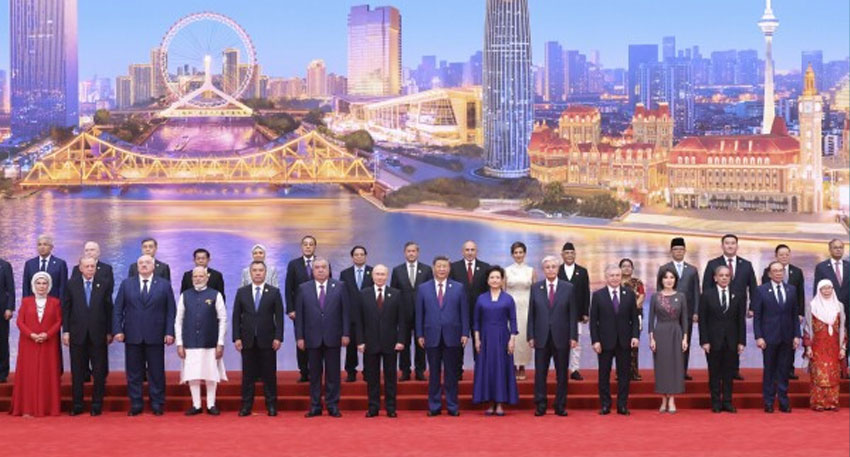
On June 26, the United Nations Charter marked its 80th anniversary — a solemn milestone for the foundational document underpinning the modern international order. Enshrined in its preamble are principles that aspire to safeguard humanity from war, uphold equal rights among nations, ensure justice, promote social progress, and cultivate a dignified life for all. Yet, eight decades on, those ideals are increasingly flouted — not by peripheral actors on the world stage, but by the very powers that fashioned and claim to defend this global framework.
The post-1945 multilateral architecture — encompassing institutions such as UNESCO, the Food and Agriculture Organization, and the UNHCR — was built to embody the spirit of the Charter. However, what we now witness is an erosion of that spirit in a world mired in fragmentation, where regional conflicts proliferate, nuclear rhetoric escalates, state sovereignty is violated, and unilateralism supersedes consensus. The global order is undergoing an acute crisis of legitimacy, one that both tests its resilience and reveals opportunities for reimagination.
Western powers, particularly those of the Anglo-American axis, continue to project themselves as the architects and stewards of the prevailing international system. Their dominance has long been accompanied by an insistence on the universality of their political, economic, and ideological models — a hegemonic assertion often imposed on the rest of the world with little room for dissenting epistemologies.
This monopoly over global narratives is sustained by a historical legacy of imperialism and colonialism, during which Western nations perpetrated egregious atrocities under the guise of civilising and evangelising missions. Beyond brute force, they constructed an elaborate intellectual edifice that still defines the contours of international relations today. In academic institutions worldwide, introductory texts in this field overwhelmingly privilege Anglo-American theoretical traditions, naturalising them as the sole valid frameworks for understanding global affairs, while marginalising the voices and perspectives of the Global South.
Realist thinkers such as Samuel Huntington, Francis Fukuyama, and Graham Allison exemplify this epistemic orthodoxy. Huntington’s vision of a world divided along civilisational lines, Fukuyama’s triumphalist proclamation of liberal democracy as the "end of history", and Allison’s invocation of the "Thucydides Trap" as a lens through which to view Sino-American rivalry — all rest on a zero-sum conception of international politics, in which the security and prosperity of one state are achievable only at the expense of others.
Such realism, steeped in methodological individualism, reduces states to rational actors bent solely on maximising self-interest. This outlook justifies hegemonic ambitions as natural and inevitable. Liberal theory, for its part, purports to universalise democracy and human rights, but has repeatedly served as a rhetorical smokescreen for interventions and regime change. Even constructivism — often presented as more inclusive due to its engagement with non-state actors — has, in practice, been deployed to orchestrate so-called colour revolutions, instruments in the arsenal of hybrid warfare.
These three dominant Western paradigms — realism, liberalism, and constructivism — ultimately converge in preserving a global order predicated on
American hegemony. In this context, the scholarship of thinkers like Amitav Acharya becomes indispensable. Acharya calls for the decentering of Western-centric international relations and for the amplification of Southern epistemologies, advocating a pluralistic world order that neither imposes supremacy nor replicates patterns of domination.
To move toward a more equitable international system, we must broaden our conceptual vocabulary. Non-Western philosophies offer profound alternatives. The African ethos of Ubuntu, for instance, envisions humanity as a relational web, where personal fulfillment is inseparable from communal well-being. It calls for humility, cooperation, and an embrace of difference as a source of enrichment, not threat.
Similarly, the Taoist doctrine of Yin and Yang posits that opposites are not antagonistic but interdependent; Confucianism extols moral authority and social harmony; and the Incan reverence for Pachamama affirms the sacred reciprocity between humanity and nature — a relationship starkly absent in extractive models of development.
These worldviews challenge the epistemic dominance of Western international relations theory and open space for a more inclusive, multipolar order — one rooted not in coercion but in mutual respect and shared destiny. Humanity, after all, is not a monoculture to be pruned into uniformity, but a vast garden of diverse flora — civilisations, cultures, and peoples — each contributing to the collective splendour.
As we navigate this pivotal moment in global history, it is imperative to rekindle the aspirations articulated 80 years ago in San Francisco. A new international order is not merely desirable but necessary — one that upholds the dignity of all peoples, ensures peace through justice, and fosters a prosperity that is genuinely collective. Only then can the promises of the UN Charter be truly redeemed.




